Pam Martens and Russ Martens, 23 July 2021
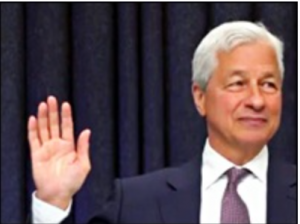 The unthinkable is happening with alarming regularity at the Frankenbank JPMorgan Chase. Over the last seven years, with Chairman and CEO Jamie Dimon at the helm, JPMorgan Chase has managed to do what no other federally-insured American bank has managed to do in the history of banking in the United States. The bank has admitted to five separate felony countsbrought by the U.S. Department of Justice, while regulators took no action to remove the Board of Directors or Jamie Dimon.
The unthinkable is happening with alarming regularity at the Frankenbank JPMorgan Chase. Over the last seven years, with Chairman and CEO Jamie Dimon at the helm, JPMorgan Chase has managed to do what no other federally-insured American bank has managed to do in the history of banking in the United States. The bank has admitted to five separate felony countsbrought by the U.S. Department of Justice, while regulators took no action to remove the Board of Directors or Jamie Dimon.
Now, once again, the outrageous hubris of this Board is on display. Just last fall the bank forked over $920 million of shareholders moneyto settle its fourth and fifth felony counts brought by the Department of Justice, this time for rigging the precious metals and U.S. Treasury market. Now, in the dog days of summer, rarely a time for bonuses on Wall Street, the Jrgan Chase board announced on July 20 that it is giving Dimon 1.5 million stock options which, according to a specialist cited at Bloomberg News, have a total value of $50 million on paper.

 Max Keiser does not really understand what the monetary expansion has to cover.
Max Keiser does not really understand what the monetary expansion has to cover. Erik Schatzker
Erik Schatzker 
 Alan Greenspan served five terms as chairman of the Board of Governors of the Federal Reserve System. His last term ended on January 31, 2006. He was appointed chairman by four different presidents. From 1954 to 1974 and from 1977 to 1987, Greenspan was chairman and president of Townsend-Greenspan & Co., Inc. From 1974 to 1977, he served as chairman of the President’s Council of Economic Advisers under President Gerald Ford, and from 1981 to 1983, as chairman of the National Commission on Social Security Reform. In addition, he served as a member of President Ronald Reagan’s Economic Policy Advisory Board and was a consultant to the Congressional Budget Office. After leaving the Board of Governors, Greenspan began his own Washington DC-based consulting firm, Greenspan Associates, LLC. Over the years, Greenspan also held many roles in the public and private sectors. In addition, he served as a corporate director for a number of firms, including Aluminum Company of America (Alcoa); Automatic Data Processing, Inc.; Capital Cities/ABC, Inc.; General Foods, Inc.; J.P. Morgan & Co., Inc.; Morgan Guaranty Trust Company of New York; Mobil Corporation; and The Pittston Company. He received his bachelor’s (summa cum laude), master’s, and doctoral degrees in economics, all from New York University.
Alan Greenspan served five terms as chairman of the Board of Governors of the Federal Reserve System. His last term ended on January 31, 2006. He was appointed chairman by four different presidents. From 1954 to 1974 and from 1977 to 1987, Greenspan was chairman and president of Townsend-Greenspan & Co., Inc. From 1974 to 1977, he served as chairman of the President’s Council of Economic Advisers under President Gerald Ford, and from 1981 to 1983, as chairman of the National Commission on Social Security Reform. In addition, he served as a member of President Ronald Reagan’s Economic Policy Advisory Board and was a consultant to the Congressional Budget Office. After leaving the Board of Governors, Greenspan began his own Washington DC-based consulting firm, Greenspan Associates, LLC. Over the years, Greenspan also held many roles in the public and private sectors. In addition, he served as a corporate director for a number of firms, including Aluminum Company of America (Alcoa); Automatic Data Processing, Inc.; Capital Cities/ABC, Inc.; General Foods, Inc.; J.P. Morgan & Co., Inc.; Morgan Guaranty Trust Company of New York; Mobil Corporation; and The Pittston Company. He received his bachelor’s (summa cum laude), master’s, and doctoral degrees in economics, all from New York University. Janet L. Yellen took office as chair of the Board of Governors of the Federal Reserve System in February 2014, for a four-year term ending February 3, 2018. Yellen is professor emeritus at the University of California at Berkeley. She served as a member of the Board of Governors until February 1997 and then left the Board to become chair of the Council of Economic Advisers through August 1999. She also chaired the Economic Policy Committee of the Organization for Economic Cooperation and Development from 1997 to 1999. Yellen served as president and chief executive officer of the Federal Reserve Bank of San Francisco (2004–10) as well as vice chair of the Board of Governors (2010-14) before her appointment as chair. Yellen is a member of both the Council on Foreign Relations and the American Academy of Arts and Sciences. She has served as president of the Western Economic Association, vice president of the American Economic Association, and a fellow of the Yale Corporation. She graduated from Brown University with a degree in economics in 1967. She received her doctorate in economics from Yale University in 1971.
Janet L. Yellen took office as chair of the Board of Governors of the Federal Reserve System in February 2014, for a four-year term ending February 3, 2018. Yellen is professor emeritus at the University of California at Berkeley. She served as a member of the Board of Governors until February 1997 and then left the Board to become chair of the Council of Economic Advisers through August 1999. She also chaired the Economic Policy Committee of the Organization for Economic Cooperation and Development from 1997 to 1999. Yellen served as president and chief executive officer of the Federal Reserve Bank of San Francisco (2004–10) as well as vice chair of the Board of Governors (2010-14) before her appointment as chair. Yellen is a member of both the Council on Foreign Relations and the American Academy of Arts and Sciences. She has served as president of the Western Economic Association, vice president of the American Economic Association, and a fellow of the Yale Corporation. She graduated from Brown University with a degree in economics in 1967. She received her doctorate in economics from Yale University in 1971.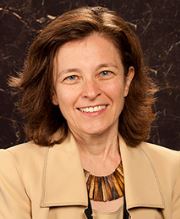 Sarah Bloom Raskin took office as a member of the Board of Governors on October 4, 2010, to fill an unexpired term ending January 31, 2016. She resigned on March 13, 2014. Early in her career, she worked at the Federal Reserve Bank of New York and the Joint Economic Committee of the Congress. She was later managing director at the Promontory Financial Group. She also served as the banking counsel for the US Senate Committee on Banking, Housing, and Urban Affairs. Before her appointment to the Board of Governors, Raskin was the commissioner of financial regulation for the State of Maryland. Raskin received a bachelor’s degree in economics (magna cum laude) from Amherst College and earned a law degree from Harvard Law School.
Sarah Bloom Raskin took office as a member of the Board of Governors on October 4, 2010, to fill an unexpired term ending January 31, 2016. She resigned on March 13, 2014. Early in her career, she worked at the Federal Reserve Bank of New York and the Joint Economic Committee of the Congress. She was later managing director at the Promontory Financial Group. She also served as the banking counsel for the US Senate Committee on Banking, Housing, and Urban Affairs. Before her appointment to the Board of Governors, Raskin was the commissioner of financial regulation for the State of Maryland. Raskin received a bachelor’s degree in economics (magna cum laude) from Amherst College and earned a law degree from Harvard Law School.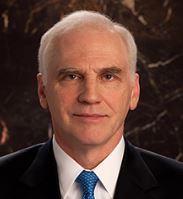 Daniel K. Tarullo took office as a member of the Board of Governors of the Federal Reserve System on January 28, 2009, to fill an unexpired term ending January 31, 2022. He resigned on April 5, 2017. Before his appointment, Tarullo was professor of law at Georgetown University Law Center. Before joining the Georgetown law faculty, Tarullo held several senior positions in the Clinton administration. From 1993 to 1998, Tarullo served as assistant secretary of state for economic and business affairs, deputy assistant to the president for economic policy, and assistant to the president for international economic policy. He also served as a principal on both the National Economic Council and the National Security Council. From 1995 to 1998, Tarullo was President Bill Clinton’s personal representative to the G7/G8 group of industrialized nations. Tarullo graduated from Georgetown University (BA) and from Duke University (MA). Tarullo received his law degree (summa cum laude) from the University of Michigan Law School.
Daniel K. Tarullo took office as a member of the Board of Governors of the Federal Reserve System on January 28, 2009, to fill an unexpired term ending January 31, 2022. He resigned on April 5, 2017. Before his appointment, Tarullo was professor of law at Georgetown University Law Center. Before joining the Georgetown law faculty, Tarullo held several senior positions in the Clinton administration. From 1993 to 1998, Tarullo served as assistant secretary of state for economic and business affairs, deputy assistant to the president for economic policy, and assistant to the president for international economic policy. He also served as a principal on both the National Economic Council and the National Security Council. From 1995 to 1998, Tarullo was President Bill Clinton’s personal representative to the G7/G8 group of industrialized nations. Tarullo graduated from Georgetown University (BA) and from Duke University (MA). Tarullo received his law degree (summa cum laude) from the University of Michigan Law School.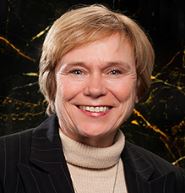 Elizabeth A. Duke joined the Board of Governors of the Federal Reserve System on August 5, 2008, to fill an unexpired term ending January 31, 2012. She continued to serve on the Board of Governors until August 31, 2013. Duke was on the board of directors of the Federal Reserve Bank of Richmond from 1998 to 2000. She was also the president of the Virginia Bankers Association from 1999 to 2000 and chair of the American Bankers Association from 2004 to 2005. Before her appointment to the Board of Governors, Duke was senior executive vice president and chief operating officer of TowneBank. Before that, she was an executive vice president at Wachovia Bank and an executive vice president at SouthTrust Bank. Earlier in her career, Duke was president and chief executive officer of Bank of Tidewater, based in Virginia Beach. She graduated from the University of North Carolina at Chapel Hill (BA) and from Old Dominion University (MA).
Elizabeth A. Duke joined the Board of Governors of the Federal Reserve System on August 5, 2008, to fill an unexpired term ending January 31, 2012. She continued to serve on the Board of Governors until August 31, 2013. Duke was on the board of directors of the Federal Reserve Bank of Richmond from 1998 to 2000. She was also the president of the Virginia Bankers Association from 1999 to 2000 and chair of the American Bankers Association from 2004 to 2005. Before her appointment to the Board of Governors, Duke was senior executive vice president and chief operating officer of TowneBank. Before that, she was an executive vice president at Wachovia Bank and an executive vice president at SouthTrust Bank. Earlier in her career, Duke was president and chief executive officer of Bank of Tidewater, based in Virginia Beach. She graduated from the University of North Carolina at Chapel Hill (BA) and from Old Dominion University (MA).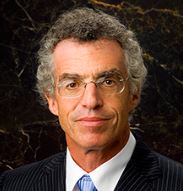 Frederic S. Mishkin was appointed to the Board of Governors of the Federal Reserve System on September 5, 2006, to fill an unexpired term ending January 31, 2014. He resigned on August 31, 2008. From 1999 to 2006, Mishkin was the Alfred Lerner Professor of Banking and Financial Institutions at the Graduate School of Business, Columbia University. Before that, he was the A. Barton Hepburn Professor of Economics from 1991 to 1999 and professor at the Graduate School of Business from 1983 to 1991. He was also a research associate at the National Bureau of Economic Research (1980–2006) and a senior fellow at the Federal Deposit Insurance Corporation’s Center for Banking Research (2003–06). From 1994 to 1997, he was executive vice president and director of research at the Federal Reserve Bank of New York and an associate economist for the Federal Open Market Committee.
Frederic S. Mishkin was appointed to the Board of Governors of the Federal Reserve System on September 5, 2006, to fill an unexpired term ending January 31, 2014. He resigned on August 31, 2008. From 1999 to 2006, Mishkin was the Alfred Lerner Professor of Banking and Financial Institutions at the Graduate School of Business, Columbia University. Before that, he was the A. Barton Hepburn Professor of Economics from 1991 to 1999 and professor at the Graduate School of Business from 1983 to 1991. He was also a research associate at the National Bureau of Economic Research (1980–2006) and a senior fellow at the Federal Deposit Insurance Corporation’s Center for Banking Research (2003–06). From 1994 to 1997, he was executive vice president and director of research at the Federal Reserve Bank of New York and an associate economist for the Federal Open Market Committee. 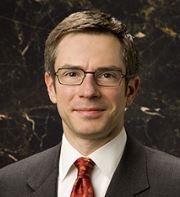 Randall S. Kroszner joined the Board of Governors of the Federal Reserve System on March 1, 2006. He left the Board on January 21, 2009. Kroszner accepted a position as an assistant professor at the University of Chicago Booth School of Business. From 2001 to 2003, Kroszner served on the President’s Council of Economic Advisers (CEA). Before joining the Board of Governors, Kroszner served the Federal Reserve System as a visiting scholar at the Board of Governors and a research consultant and a member of the Academic Advisory Panel at the Federal Reserve Bank of Chicago. He was also a visiting scholar at the Federal Reserve Banks of New York, St. Louis, Kansas City, and Minneapolis. He graduated from Brown University and went on to graduate with a doctorate in economics from Harvard University in 1990.
Randall S. Kroszner joined the Board of Governors of the Federal Reserve System on March 1, 2006. He left the Board on January 21, 2009. Kroszner accepted a position as an assistant professor at the University of Chicago Booth School of Business. From 2001 to 2003, Kroszner served on the President’s Council of Economic Advisers (CEA). Before joining the Board of Governors, Kroszner served the Federal Reserve System as a visiting scholar at the Board of Governors and a research consultant and a member of the Academic Advisory Panel at the Federal Reserve Bank of Chicago. He was also a visiting scholar at the Federal Reserve Banks of New York, St. Louis, Kansas City, and Minneapolis. He graduated from Brown University and went on to graduate with a doctorate in economics from Harvard University in 1990.